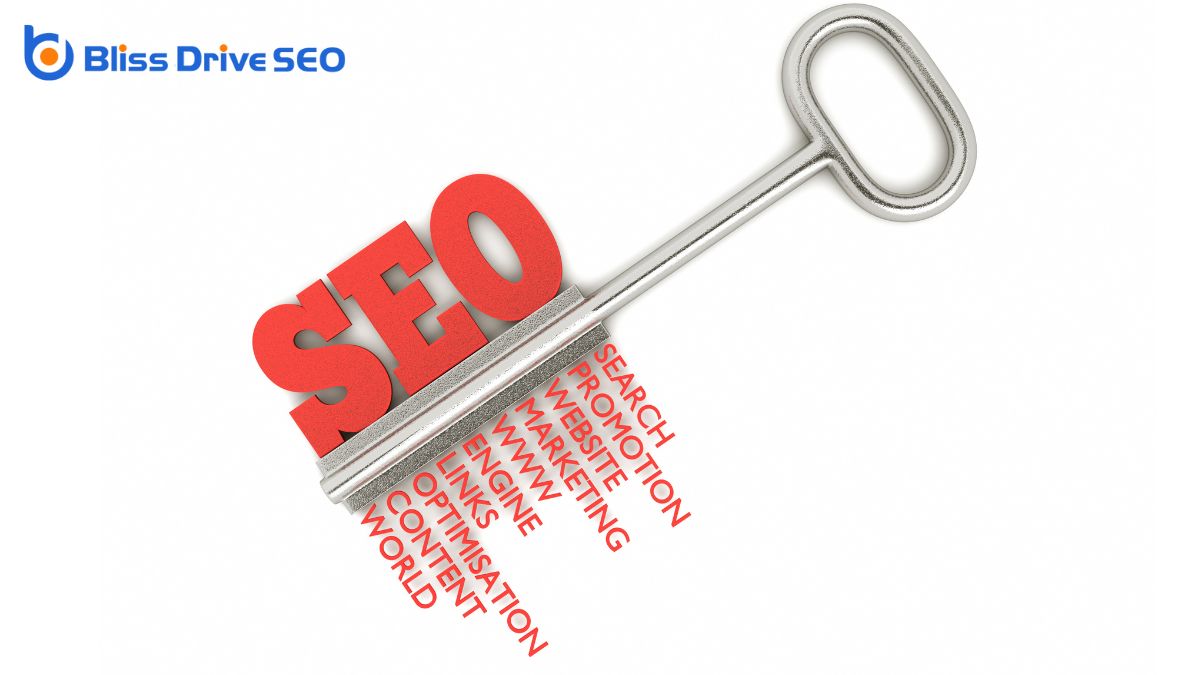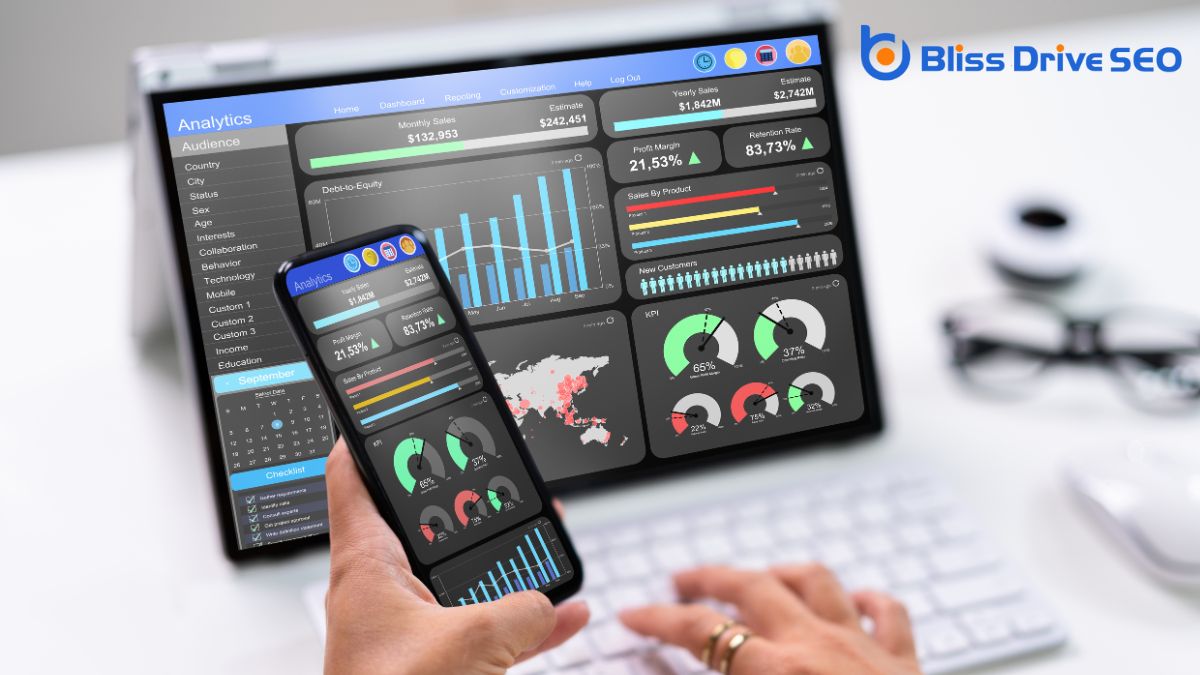Learn More About Us

You're probably wondering if delving into the world of SEO as a beginner is doable. The short answer is yes, but it requires patience and the right approach. With the internet overflowing with resources, starting with the fundamentals like keyword researchThe process of finding and analyzing search terms that people enter into search engines. and on-page optimizationImproving individual webpages to rank higher and earn more relevant traffic in search engines. is vital. Once you grasp these, you can explore advanced tools and strategies. But where do you start, and how do you know which resources are worth your time? As you commence on this journey, let's explore the essential steps that can set you on the path to mastering SEO.
Mastering SEO fundamentals is vital for anyone seeking to enhance their website's visibility. You might wonder what SEO stands for—it's Search Engine Optimization. To start, focus on understanding how search engines like Google operate. They use algorithms to determine the relevance and ranking of your site in search results. The more optimized your site is, the higher it appears, increasing the likelihood that people will visit.
You need to know how to optimize your content effectively. Begin by researching keywordsWords or phrases that users type into search engines to find information.—terms or phrases people input into search engines when seeking information. Utilize these strategically in your website's content. Make sure your site is user-friendly, with a clear structure and easy navigation. This aids both visitors and search engines in finding what they require.
Another vital aspect is producing quality content. Search engines prefer websites that consistently update with valuable, pertinent information. Engage your audience with content that addresses their inquiries or resolves their issues.

As you start exploring SEO, familiarizing yourself with key terminology is essential for your success. Knowing the right terms helps you utilize essential tools effectively and avoid common mistakes that can hamper your progress. By grasping these concepts, you'll build a solid foundation for advancing your SEO skills.
When you're delving into the world of SEO, understanding its key terminology is essential for exploring this digital landscape. SEO, or Search Engine Optimization, is all about enhancing your website's visibility on search engines like Google. To navigate SEO, you need to grasp some crucial terms.
Keywords are the foundation. These are the words or phrases people type into search engines. Using the right keywords helps your content appear in relevant searches.
Then there's on-page SEO, which involves optimizing individual pages on your site—think quality content, headers, and meta descriptions.
Off-page SEOOptimization actions taken outside the website, primarily involving backlinks and social media., on the other hand, focuses on activities outside your website that can improve its ranking, like backlinksLinks from other websites pointing to your website, crucial for SEO. from other sites. Backlinks are links from external sites to yours, boosting your site's authority and trustworthiness.
You'll also encounter terms like SERP, which is short for Search Engine Results Page, which is the page displaying search results. Organic trafficVisitors who come to a website through unpaid search engine results. refers to visitors who find your site through non-paid search results.
To effectively optimize your website, you'll need to familiarize yourself with a variety of essential SEO toolsSoftware and online tools used for various aspects of SEO, such as keyword research and link buildin.... These tools help you understand how your site is performing and where improvements are necessary. Google's own tools, like Google AnalyticsThe systematic computational analysis of data or statistics to gain insights and support decision-ma... and Google Search Console, are a great starting point. They provide insights into your site's traffic and highlight any critical issues needing attention.
Another must-have is an SEO auditA thorough analysis of a website’s SEO performance and areas for improvement. tool, such as SEMrush or Ahrefs. These platforms dive deep into your site's SEO health, offering keyword research, backlink analysis, and competitor insights. They empower you to identify keywords that can drive more traffic to your site and monitor your standing against competitors.
Keyword research tools are also vital. They help you find the right terms your audience is searching for. Google Keyword Planner is a popular choice, but alternatives like Ubersuggest offerThe specific product or service being promoted by affiliates. additional features.
Many beginners fall into common SEO mistakes that can hinder their site's performance. One frequent error is keyword stuffingOverloading a page with keywords to manipulate search engine rankings., where you overuse keywords in hopes of ranking higher. This makes your content look unnatural and can actually harm your ranking. Instead, focus on using keywords organically and contextually.
Another mistake is neglecting meta tags, like title tags and meta descriptions. These elements help search engines understand your content and affect how users perceive your site in search results. Confirm they're relevant and compelling to attract clicks.
Ignoring mobile optimizationDesigning and formatting web content to ensure it performs well on mobile devices. is also a critical error. With more users accessing websites via mobile devices, your site must be responsive. If it's not mobile-friendly, you'll lose visitors and potential rankings.
Don't disregard the importance of high-quality backlinks. Some beginners either ignore them or resort to spammy link-building techniques. Aim for backlinks from reputable sources to improve your site's authority.
To successfully navigate the world of SEO, you'll need the right set of tools at your disposal. Start with must-have SEO software that helps you track and analyze your website's performance.
Don't forget to explore free resources and keyword research tools that can provide valuable insights without breaking the bank.
Exploring the world of SEO can be intricate, but having the right tools in your arsenal can make all the difference. As a beginner, you might feel overwhelmed by the sheer number of SEO software options out there. Fear not—choosing a few key tools can help you manage your SEO tasks effectively and boost your website's performance.
First, consider using Google Analytics. This free tool provides valuable insights into your website traffic, helping you understand where visitors come from and which pages perform best. It's an essential starting point for any SEO strategy.
Next, explore Google Search Console, which allows you to monitor your site's presence in Google search results and identify potential issues.
For keyword research, try SEMrush or Ahrefs. These tools offer in-depth data on keyword rankings, competition, and trends, enabling you to optimize your content effectively. Additionally, they provide backlink analysis to help you improve your site's authority.
Explore the world of free SEO resources that can significantly enhance your website's visibility without overspending. As a beginner, you may feel overwhelmed by the abundance of tools available but fear not. There are various essential, no-cost options tailored to assist you in comprehending and improving your site's performance. These resources are user-friendly, enabling you to concentrate on optimizing your content and ensuring an enhanced user experience.
Consider using these complimentary tools to initiate your SEO journey:
These tools empower you to make well-informed decisions, enhance your content approach, and ultimately elevate your website's performance in search engine outcomes.
After exploring free resources that enhance your website's visibility, it's time to focus on keyword research tools that form the backbone of any effective SEO strategy. These tools help you identify the terms your target audience uses in search engines, which is vital for driving traffic to your site. By understanding what people are searching for, you can tailor your content to meet their needs and increase your chances of ranking higher in search results.
Start with Google Keyword Planner. It's free and offers valuable insights into search volume and keyword competitiveness.
Ahrefs and SEMrush are also popular choices, providing in-depth analysis and competitor research. They might've a learning curve, but their detailed data can greatly boost your SEO efforts.
Ubersuggest is another user-friendly tool that is perfect for beginners. It not only suggests keywords but also shows related terms and offers content ideas.
Don't forget about AnswerThePublic, which visualizes questions people ask, helping you create content that directly answers your audience's queries.
Using these tools effectively can transform your SEO strategy. You'll gain clarity on what keywords resonate with your audience, helping you craft content that truly engages and converts.
Mastering on-page optimization is crucial for improving your website's search engine ranking and user experience. It's all about making sure each page on your site is perfectly tailored to both search engines and visitors. Let's delve into some key tips to get you started.
Focus on creating high-quality, engaging content that addresses the needs of your audience. Search engines love content that's relevant and useful. Remember, content is king, but context is queen. Guarantee your keywords are naturally integrated without overstuffing.
Utilize header tags (H1, H2, H3) to structure your content. This not only enhances readability but helps search engines understand the hierarchy and importance of the information on your page.
Make certain your URLs are clean and descriptive. A clear URL structure helps search engines index your site better and provides visitors with a glimpse of what to expect.
Here's a quick checklist to enhance on-page optimization:
While perfecting on-page elements lays a strong foundation, off-page SEO strategies are equally important for boosting your site's visibility and authority. These strategies focus on building your site's reputation and trustworthiness through external means.
One key tactic is link building. When other reputable websites link back to yours, search engines interpret this as a vote of confidence, which can enhance your rankings. Aim to acquire backlinks from high-quality and relevant sites in your nicheA specific segment of the market targeted by affiliates to promote products or services..
Social media also plays a significant role in off-page SEO. Sharing your content on platforms like FacebookA social networking site where users can post comments, share photographs, and links to news or othe..., TwitterA microblogging and social networking service where users post and interact with messages known as "..., or LinkedInA professional networking site used for career and business networking. increases its reach and can leadA potential customer referred by an affiliate who has shown interest in the product or service but h... to more backlinks. Engage with your audience by responding to comments and participating in discussions to foster a sense of community around your brand.
Another effective strategy is guest bloggingWriting and publishing articles on a website to provide information and engage readers.. By contributing articles to other reputable websites, you not only gain exposure to a new audience but also earn valuable backlinks. When selecting sites for guest posts, make sure they're relevant to your industry and have a strong online presence.

Understanding the impact of your SEO efforts is crucial, and that's where tracking and analytics come into play. It's vital to know whether your strategies are working or if you need to make adjustments. By utilizing the right tools, you can gain insights into your website's performance and understand how visitors interact with your content.
To get started with tracking and analytics, consider these key actions:
Staying updated with SEO's ever-evolving landscape is essential for ongoing success. You need to tap into the right resources to stay ahead of the game. Start with online courses from platforms like Coursera, Udemy, or LinkedIn Learning. These platforms offer structured learning paths tailored to all skill levels.
Engage with SEO blogs like Moz, Search Engine Journal, and Neil Patel's blog. They regularly publish articles, case studiesIn-depth analyses of specific instances or examples to highlight success stories or lessons learned...., and insights that keep you informed about the latest trends.
Don't overlook podcastsAudio content distributed through digital channels, often in series format. as a learning tool. Shows like "Marketing School" and "Experts On The Wire" provide valuable tips and strategies. You can listen to them during commutes or downtime.
Forums and communities like Reddit's SEO subreddit or the Warrior Forum are also great places to ask questions and share experiences with fellow learners.
Social media can be a goldmine of information, too. Follow industry leaders on Twitter or participate in LinkedIn groups dedicated to SEO.
To wrap up, consider attending SEO webinarsLive or recorded online presentations or seminars used to educate and engage an audience. and conferences, either virtually or in person, to network with professionals and learn directly from experts. By leveraging these resources, you'll continuously refine your skills and keep your SEO knowledge fresh and relevant.
Absolutely, you can learn SEO as a beginner by diving into the basics and gradually expanding your knowledge. Focus on understanding key terminology, mastering essential tools, and implementing on-page and off-page strategies. Don't forget to track your progress with analytics toolsSoftware used to track and analyze website performance, user behavior, and marketing efforts.. Keep your learning alive by exploring online courses, reading blogs, and attending industry events. With dedication and the right resources, you'll be well-equipped to navigate and succeed in the dynamic world of SEO.
